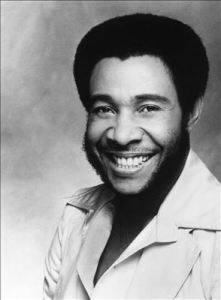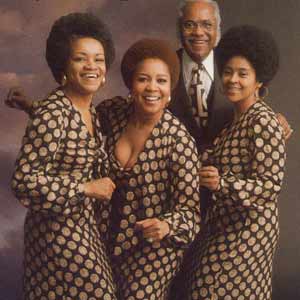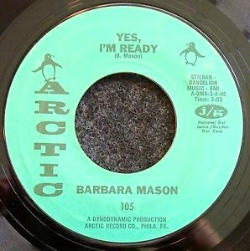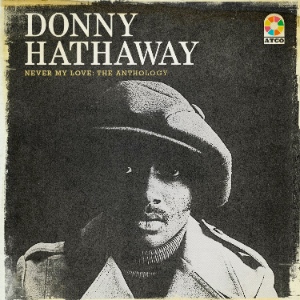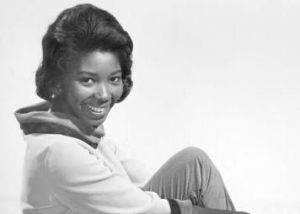 Curtis Mayfield was 14 years old when he joined the group that would become the Impressions. He was born in Chicago in 1942 and by the time he was seven, he was singing in the church’s gospel choir with a group called the Northern Jubilee Gospel Singers. Mayfield became friends with Jerry Butler in high school and in 1956, he joined Butler’s group, the Roosters. The other members of the group were the brothers Arthur and Richard Brooks. Two years later, the group changed their name to the Impressions and added Sam Gooden to the lineup.
Curtis Mayfield was 14 years old when he joined the group that would become the Impressions. He was born in Chicago in 1942 and by the time he was seven, he was singing in the church’s gospel choir with a group called the Northern Jubilee Gospel Singers. Mayfield became friends with Jerry Butler in high school and in 1956, he joined Butler’s group, the Roosters. The other members of the group were the brothers Arthur and Richard Brooks. Two years later, the group changed their name to the Impressions and added Sam Gooden to the lineup.
The Impressions had an early smash with Butler singing lead on “Your Precious Love” and it was enough to motivate Butler to leave the group to start a solo career. Mayfield followed him and co-wrote and played on Butler’s solo hit “He Will Break Your Heart.” But Mayfield wasn’t interested in being a sideman and soon returned to the Impressions who had replaced Butler with Fred Cash. It was the classic Impressions lineup of Mayfield, Gooden, and Cash which signed with ABC Records and released a string of hits which began in 1961 with “Gypsy Woman” and continued with “I’m So Proud,” “It’s Alright,” “Keep on Pushing,” “Amen,” “We’re a Winner,” and “Choice of Colors,” which would be the last hit that Mayfield recorded with the Impressions.
After 14 years with the group, Mayfield left the Impressions to start a solo career. That is where Keep On Keeping On, the new box set from Rhino Records begins. Rhino has lovingly collected Mayfield’s first four solo albums to commemorate the 50th anniversary of the start of Mayfield’s solo career and to mark the 20th anniversary of his death. The set begins with Mayfield’s first solo album, Curtis, which was released in 1970 and reached the Top 20 on its way to becoming a Gold Album. Curtis includes the hit singles “If There’s a Hell Below, We’re All Going to Go,” and “Move on Up.” In addition to its commercial success, Curtis was one of the most influential albums of its time, inspiring later socially conscious work by Marvin Gaye and Stevie Wonder.
 A year after his successful debut as a solo artist, Mayfield returned with Roots, which reached the Top 10 on the R&B chart. While not quite as successful as the debut, Roots scored with hits like “Get Down,” “Beautiful Brother of Mine,” and “We Got to Have Peace.” Mayfield’s next effort, which is not included in this set because it was not a true solo album, was his incredibly successful soundtrack for the film Super Fly. The album went to #1 on both the pop and R&B charts and pushed two singles, “Freddie’s Dead,” and “Superfly” into the Top 10.
A year after his successful debut as a solo artist, Mayfield returned with Roots, which reached the Top 10 on the R&B chart. While not quite as successful as the debut, Roots scored with hits like “Get Down,” “Beautiful Brother of Mine,” and “We Got to Have Peace.” Mayfield’s next effort, which is not included in this set because it was not a true solo album, was his incredibly successful soundtrack for the film Super Fly. The album went to #1 on both the pop and R&B charts and pushed two singles, “Freddie’s Dead,” and “Superfly” into the Top 10.
In 1973, Mayfield released his third proper solo album, Back to the World. The album topped the R&B chart and returned Mayfield to the Top 20 on the pop albums chart. The album’s hit singles included “Future Shock,” “If I Were a Child Again,” and “Can’t Say Nothin’.” Mayfield’s fourth solo album and the final one collected in this set was released in 1974. Sweet Exorcist came within a whisker of the top spot on the R&B chart, settling at #2 and also found Top 40 success on the pop chart. The album’s success was driven by two hit singles, the title track, and “Kung Fu.”
Keep On Keeping On ends with the Sweet Exorcist album but fortunately, Mayfield’s career did not. He continued to record into the 1990s and standout albums from this period included Sparkle (1976) and Heartbeat (1979). “So In Love,” released in 1975, was the last Mayfield single to hit the pop chart but records like “Only You Babe” (1976), “You Are, You Are” (1978), and “She Don’t Let Nobody (But Me)” (1981), continued to find success on the R&B chart. In all, Mayfield scored more than 30 solo hits on the R&B chart to go along with a similar number of R&B hits during his time with the Impressions.
On August 13, 1990, Mayfield was paralyzed when a lighting rig fell on him during a show in Brooklyn. The accident ended his career as a guitar player but he could still write songs and sing, something he did to great effect on his final album, New World Order, in 1997. Mayfield died of complications from diabetes in 1999.
Curtis Mayfield is remembered for introducing social activism into soul music. The Impressions hits “Keep On Pushing,” “People Get Ready,” and “We’re A Winner” became anthems of the Civil Rights Movement in the 1960s and were often used by Martin Luther King to inspire marchers. Mayfield and the Impressions were inducted into the Vocal Group Hall of Fame in 1995 and the Rock and Roll Hall of Fame in 1991 (he was also inducted into the Rock Hall as a solo artist in 1999, one of a handful of double inductees). He received a Grammy Legend Award in 1994 and a Grammy Lifetime Achievement Award in 1995. Just before he died, Mayfield was elected to the Songwriters Hall of Fame.
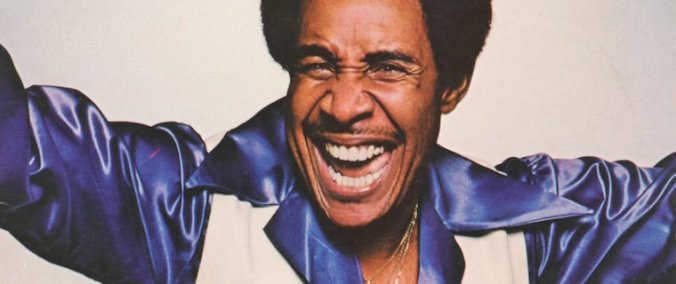 How many artists can you think of whose careers spanned the years from doo-wop to classic soul and into the disco era and had hits in all of them? The one that leaps to mind for me is Gene Chandler. There were landmarks along the way for Chandler, from his 1962 doo-wop smash “Duke of Earl,” to his 1964 soul classic “Just Be True,” to his 1978 disco hit “Get Down.”
How many artists can you think of whose careers spanned the years from doo-wop to classic soul and into the disco era and had hits in all of them? The one that leaps to mind for me is Gene Chandler. There were landmarks along the way for Chandler, from his 1962 doo-wop smash “Duke of Earl,” to his 1964 soul classic “Just Be True,” to his 1978 disco hit “Get Down.”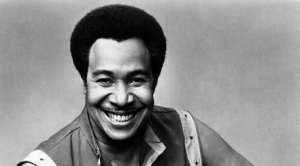
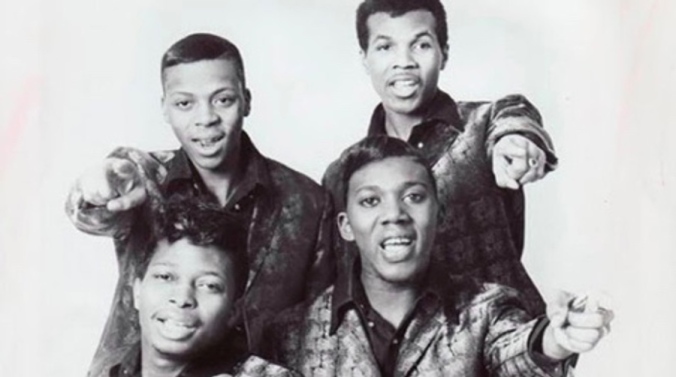 Chicago has been known as a blues mecca ever since giants like Muddy Waters and Howlin’ Wolf made their way north from Mississippi seeking greater opportunity. In fact, the electrified and electrifying sound they and others developed would come to be known as Chicago Blues. But the music coming out of the Windy City was not limited to blues. Soul music giants like Curtis Mayfield and the Impressions, Jerry Butler, and Billy Stewart called Chicago home as well.
Chicago has been known as a blues mecca ever since giants like Muddy Waters and Howlin’ Wolf made their way north from Mississippi seeking greater opportunity. In fact, the electrified and electrifying sound they and others developed would come to be known as Chicago Blues. But the music coming out of the Windy City was not limited to blues. Soul music giants like Curtis Mayfield and the Impressions, Jerry Butler, and Billy Stewart called Chicago home as well.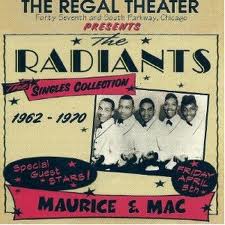
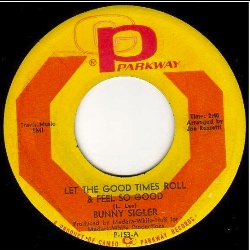 I’m headed back to Philadelphia next week and for me it’s a place where the good times roll. My upcoming trip put me in mind of Bunny Sigler, an early progenitor of Philly Soul who hit it big with his 1967 hit “Let the Good Times Roll/Feel So Good.” The two-song mashup reached #22 in the summer of that year.
I’m headed back to Philadelphia next week and for me it’s a place where the good times roll. My upcoming trip put me in mind of Bunny Sigler, an early progenitor of Philly Soul who hit it big with his 1967 hit “Let the Good Times Roll/Feel So Good.” The two-song mashup reached #22 in the summer of that year.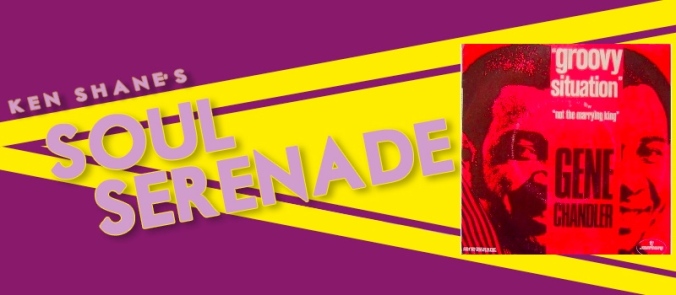 One of the biggest hits of my childhood was “Duke of Earl” by Gene Chandler. It was pretty much impossible for children of any age to not love the 1962 single with its addictive bass chant “Duke, Duke Duke, Duke of Earl … ” I’m hearing it in my head even as I write this, and now that you’re reading it, I’ll bet you are too. The proof that the record was, and is, undeniable was the #1 spot it reached on both the Pop and R&B charts.
One of the biggest hits of my childhood was “Duke of Earl” by Gene Chandler. It was pretty much impossible for children of any age to not love the 1962 single with its addictive bass chant “Duke, Duke Duke, Duke of Earl … ” I’m hearing it in my head even as I write this, and now that you’re reading it, I’ll bet you are too. The proof that the record was, and is, undeniable was the #1 spot it reached on both the Pop and R&B charts.